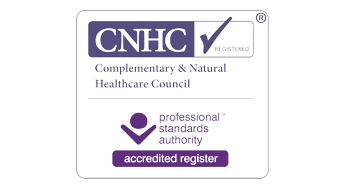The Benefits of Meditation
19th July 2023

Meditation has been practiced for thousands of years and is widely recognised as an effective aid for mental, physical and spiritual wellbeing.
Through meditation an individual can learn to achieve a state of deep relaxation to calm the mind and body, centre and ground, feel more balanced and in alignment and feel a deep sense of peace and clarity. Anyone can meditate, there’s no right or wrong way, it just takes time and practice and finding a way that works for you. However, just 10 minutes a day can have such a positive effect on your wellbeing that you are likely to want to practice it more and more!
There are many forms of meditation which can be practised as an individual or within a group, each bringing their own health benefits. I explore below some of the benefits of meditation, along with different types of practices for you to consider, give it a try!
The Benefits of Meditation:
- Stress reduction - learning methods to switch off, deeply relax, focus your attention on one thing, calm the mind and body can lower cortisol levels, lower the heart rate/blood pressure, improve your breathing and lower the production and release of stress hormones.
- Helps relieve anxiety - habitual meditation can help you relax, gain control, quieten the mind, let go of worrying thoughts and be an effective coping strategy to help you control feelings and symptoms of anxiety. It is well documented to positively help control panic attacks, generalised anxiety disorders (GAD), social anxiety and work anxiety etc.
- Helps manage mental health conditions - meditation can help you manage Depression, Anxiety, Insomnia, ADHD and numerous mental health conditions. It’s a non-invasive practice which can be practiced by anyone, anywhere so the benefits for our mental health are limitless.
- Helps manage illness - using techniques to lower your heart rate/blood pressure, improve your breathing, lower stress levels, focus inwards and take control of your thoughts and feelings can help improve wellness and give a welcome distraction from any symptoms. It has been well reported as a reliable non-invasive method to help manage, IBS, Cancer, Asthma, Heart Disease, Chronic Fatigue, Alzheimer’s, Parkinson’s and many illnesses/diseases.
- Pain management - mindfulness and meditation can be an effective technique to help with pain reduction; giving focus to something else can be a welcome distraction and learning how to centre and ground can be an effective way of letting go of pain and discomfort.
- Raises your self-awareness - focusing on yourself, your thoughts, how your body feels and your breathing can increase your awareness of yourself and who you are. It can help you understand yourself, your strengths and areas to improve upon and gain a different perspective, which in turn helps you feel more in control of yourself and life direction.
- Trains the mind to remain present - mindfulness and meditation is a great way of keeping you focused in the moment, helping you to train your mind to remain present, out of the past and worries about the future. It enables you to enjoy the moment more fully and feel the peace of just being.
- Helps concentration and memory loss - deep relaxation enables our mind and body to relax, helping our mind to de-clutter, centre and ground. Often people report that they can function better, think clearer, and be more focused on tasks following meditation. There are also now many studies considering the benefits of such with Dementia and memory loss.
- Can aid your spiritual practice - meditation can also be a deeply spiritual experience. Using meditation to connect with your inner self and your spiritual beliefs can bring profound benefits to your health, wellbeing and spiritual growth.
- Accessible anywhere - meditation can be performed anywhere, any time. You don’t need any special equipment, just yourself, time and a space in which you can relax.
Types of Meditation:
- Guided meditation - this is where you are guided through the process of meditation by another. This may be focused on simply your breathing, your body, following a progressive relaxation, body scan, vision or imagery to take you on a journey within your mind or a spiritually guided practice helping you to connect to your inner self and journey inwards.
- Mindfulness meditation - this type of meditation focuses on keeping you present, in the moment. It may involve helping you to focus on your breathing, sensations in your body, an object or focused thought/image with the intention of remaining mindful of your focus, and just observing your thoughts and emotions without judgment, acknowledging them and letting them go. Gardening and walking can also be a mindful practice!
- Focused meditation - this can be focusing your attention on your breathing, counting, using mantra/rosary beads, a specific object such as a candle or even moon-gazing. Again, the idea is to focus on a particular thing and let your mind wonder, letting go of your worries and stress.
- Spiritual meditation - this can be religious or non-religious and is often experienced in a very personal way. Some may attend a place of worship/religious groups to follow a spiritual/set meditation/ritual, others may simply practice this themselves and be aware of their inner spiritual growth and journey.
- Mantra or sound meditation - this can involve listening to relaxing sounds, particular frequency sounds such as those made by singing bowls, chimes, drums etc or listening to or simply repeating repetitive mantras. Again, with the focus of being focused on this rather than your mind wondering into its usual thought patterns.
- Movement meditation - such as Yoga, Tai Chi and Qi Jong, all of which are mindfulness practices, helping you to focus on the movements, posture, your breathing and your body rather than your worries and repetitive thoughts. They also have the added benefit of a time for relaxation, often at the beginning and end of the practice. It must also be noted, that walking and gardening can be a moving meditative practice.
- Transcendental meditation - founded by Maharishi Mahesh Yogi, this practice involves the specific use of mantras to achieve a deep sense of peace and calm.
- Zen meditation - with its roots in Buddhism, this type of meditation focuses on the breath and just being.
There are so many reasons why you should meditate, honestly it really does help to clear the mind, de-stress and enable us to feel centred, grounded and present!
I practice daily meditation to help me cope with everyday stress, enhance my spiritual practice and personal growth, it really is my anchor.
At Step-By-Step Counselling & Therapies, I offer progressive relaxations, mindfulness meditation, guided meditations and deep healing mediations on both an individual and group basis. Please get in touch for further information.
"Meditation is a vital way to purify and quiet the mind, thus rejuvenating the body."
―
Deepak Chopra






